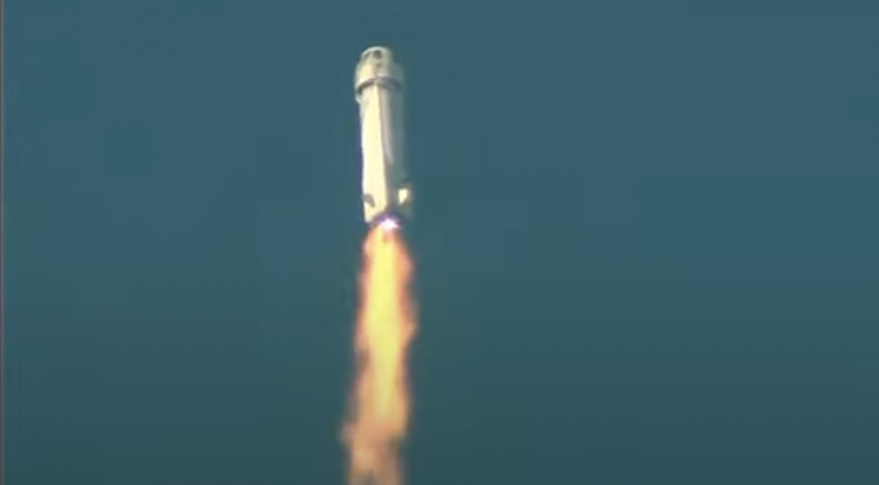WASHINGTON — The Federal Aviation Administration announced Sept. 26 it had closed the mishap investigation into a failed launch by Blue Origin’s New Shepard vehicle more than a year ago, but said the vehicle is not yet cleared to resume flights.
The FAA said in a statement that is closed the investigation into the New Shepard payload-only suborbital mission designated NS-23 that took place in September 2022. On that flight, the main engine failed about a minute into flight, triggering the abort motor in the vehicle’s crew capsule. That capsule, carrying payloads but no people, landed safely under parachutes, while the propulsion module crashed.
The FAA said in the statement that the proximate cause of the mishap was “the structural failure of an engine nozzle caused by higher than expected engine operating temperatures.” That matches with what Blue Origin itself announced in March, when its investigation concluded that changes in the design of a boundary layer cooling system for the vehicle’s BE-3PM engine caused an increase in nozzle heating, including a “hot streak” aligned with the location of fatigue in the nozzle that led to its structural failure.
In its statement, the FAA said it identified 21 corrective actions that Blue Origin is required to complete to prevent the mishap from happening again. The agency did not enumerate the actions but said they included a redesign of engine and nozzle components to improve its structural performance as well as “organizational changes.”
Closing the investigation does not itself allow the company to resume New Shepard flights. The company must, at a minimum, demonstrate to the FAA it has implemented the recommendations related to public safety before the agency will issue a modified launch license. The FAA declined to say how many of the 21 corrective actions are linked to public safety.
Blue Origin provided no additional details about efforts to implement those corrective actions. “We’ve received the FAA’s letter and plan to fly soon,” a company spokesperson said after the release of the FAA statement.
The company offered a similar timeline when it released the outcome of its investigation March 24. “Blue Origin expects to return to flight soon, with a re-flight of the NS-23 payloads,” the company said then.
Bob Smith, chief executive of Blue Origin, said at a conference June 6 that the company was “dotting the i’s and crossing the t’s” with the FAA on its plans to return to flight. “New Shepard, from that standpoint, should be ready to go fly within the next few weeks,” he said then.
New Shepard has not flown since the Sept. 12, 2022, mishap. The company announced Sept. 25 that Smith would step down as chief executive of the company in early December, to be replaced by Amazon executive Dave Limp.
